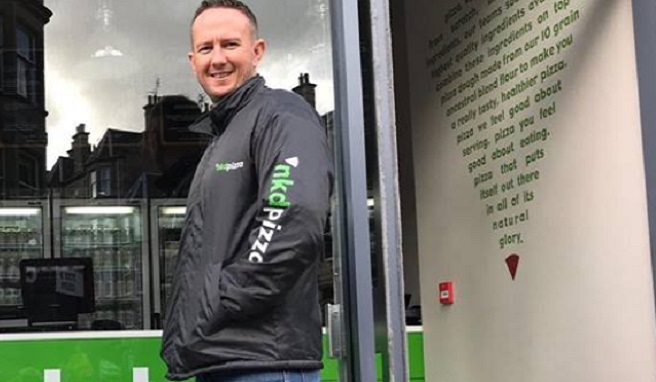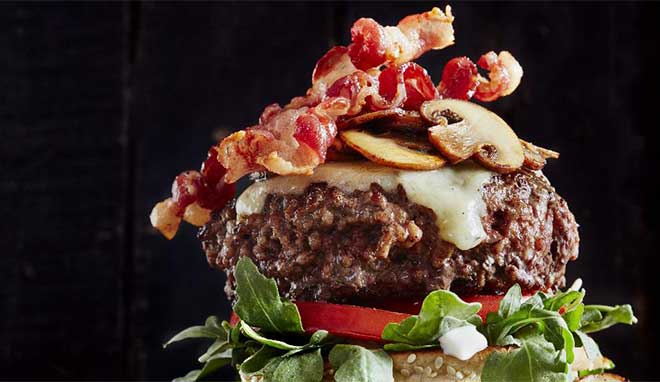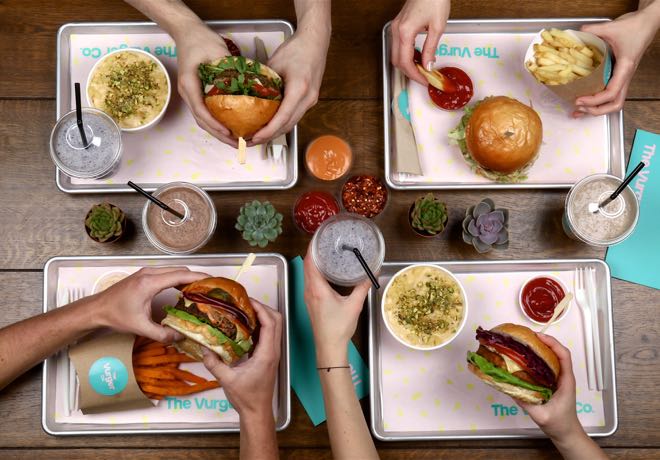

Après un master en commerce international et un mastère spécialisé en Communications, Laure débute sa carrière en agence de communication à Paris.
Tiny Leaf was originally launched in January 2016 in a temporary 4-floor residence in Notting Hill. It offered a zero waste, fine-dining restaurant, ground-floor bistro, juice bar, cinema and events space. Unfortunately, after only 3 months of success, the landlord decided to sell the building. As a result, Justin Horne (Tiny Leaf Co-founder and Chef) and Alice Gilsenan (Co-founder and Marketing Director) had to find another temporary location. And so Tiny Leaf is now situated at the Mercato Metropolitano in Borough. We had a chance to chat with Alice Gilsenan to learn more about this fascinating concept.
Q. What made you decide to open a zero waste restaurant?
 The idea originally came from Justin. Justin and I knew each other as friends because we lived in the same neighbourhood in London. One night, we were talking about where we were at and what we were doing, and I mentioned to him that I had been running a conservation charity. Justin said the environment was really important to him and that he wanted to focus his work on that aspect. I had been thinking about my career in the restaurant industry and how much food I have seen wasted over the years. Sadly, food waste is an accepted part of the industry. When I looked at the statistics and discovered that over 30% of the food produced is wasted, it matched up to my experience. Justin said, “I have a great concept idea: a restaurant that doesn’t waste any food and tries to be as waste free as possible”. We started working on the project and Tiny Leaf was born!
The idea originally came from Justin. Justin and I knew each other as friends because we lived in the same neighbourhood in London. One night, we were talking about where we were at and what we were doing, and I mentioned to him that I had been running a conservation charity. Justin said the environment was really important to him and that he wanted to focus his work on that aspect. I had been thinking about my career in the restaurant industry and how much food I have seen wasted over the years. Sadly, food waste is an accepted part of the industry. When I looked at the statistics and discovered that over 30% of the food produced is wasted, it matched up to my experience. Justin said, “I have a great concept idea: a restaurant that doesn’t waste any food and tries to be as waste free as possible”. We started working on the project and Tiny Leaf was born!
Q. Do you live a zero waste lifestyle yourself?
Yes, as we became more and more knowledgeable in this area, we applied it to our lives in general. Before, when I was in a restaurant and I couldn’t finish my plate, I would take it away with me. Now, I am militant about not wasting food, but I am also militant about what sort of packaging I take with me. Is it compostable or biodegradable?
As you may know, tackling waste involves 4 mains steps: “Refuse, Reduce, Reuse, Recycle”. I think that “Refusing” is very interesting, especially in the hospitality industry. For example, think about the abundance of straws unnecessarily used in bars. I will now refuse a straw because I believe it is the little changes that will have a larger effect.
Q. What are the core values of Tiny Leaf?
Tiny leaf is organic, vegetarian, vegan and zero waste. The organic side is quite a tricky one to achieve because organic food is more expensive, but we manage because we have a lot of customers, including businesses, who are interested in our concept. Another way to achieve our organic and zero waste commitment is to work with local grocers. We work with one who is based only a few miles away from us, and who sells organic vegetables. At the end of the day, the restaurant takes the grocer’s unsold food, which is perfectly consumable. Ordinarily, these fruits and vegetables would be destined for landfill, which causes CO2 emissions. Basically, our team intercepts the products before it is too late and turns them around quickly to serve great dishes that do not compromise on taste.
Besides, people go to restaurants for fun. So the experience is not only about being militant and vegetarian. It is all about being inclusive: embracing people who want to eat less meat, and encouraging people who are already vegan or vegetarian. It is a very relaxed atmosphere and the pop-up restaurant in Mercato Metropolitano is more casual than the original pop-up restaurant in Notting Hill.
In festivals or corporate events, we always try to bring fun to the concept because people are more willing to take ideas on, if you make it non-restrictive, warm and engaging.
Picture from a collaboration between Tiny Leaf & The Brick Kitchen.
Q. Your first pop-up restaurant was a great success and now you are back with a second one serving about 350 meals every week. Who are your customers?
I would say that 40% of our customers are engaged, 30% intrigued and 30% just like the restaurant or happen to be here and liked the idea. The first restaurant was a very ambitious pop-up, but then the landlord wanted to convert the building into luxury flats. The second pop-up restaurant in the Mercado Metropolitano is an “ in-between ” step before we open a permanent and fully sustainable restaurant. It is important to keep the idea and the brand going, and we were impressed by the ethos and the emphasis on sustainability and the environment adopted by the people of the Mercado Metropolitano. We get the feeling that they understand what it is we are doing.
Q. Looking at what you have accomplished so far, it seems hard to imagine how you could be even more environmentally friendly. So I am wondering, what are the next challenges for Tiny Leaf?
We are currently talking to investors and we are looking to launch a crowdfunding campaign to raise funds for a permanent restaurant in central London. This permanent restaurant will be a fully sustainable business. 99% of its output will be produced on site, and the waste will be used to power the building. The project is that of a vertical farm. The idea is to use new technology to ensure our environmental impact is minimal, or even positive. There is a big demand for this type of project.
Q. Would you like to see other restaurants inspired by your concept and take action to reduce waste?
Yes. Part of what we are doing is all about spreading the word and helping people think a little bit differently about waste.
Q. Based on your experience, what would be your advice to restaurant owners inspired by the Tiny Leaf concept and who are looking to start reducing their waste or even achieve zero waste?
Don’t think of zero waste as a hassle, or as something that you can achieve overnight. You have to do it by degrees. People are genuinely waste and environment conscious now. If you have a positive environmental waste policy, a clever menu design and all your staff are talking about what you are trying to achieve, this will encourage people to come (and return) to your restaurant. When people go out, they are somewhat indulgent. As restaurants, we can offer a guilt-free indulgence. That’s what people are after at the moment, in our experience.
Step 1: re-examine the current menu and see how waste conscious it is. Where do your ingredients come from? Are they seasonal? Even something as trivial as that can make a big difference if you consider things over an entire year. For example, working with a combination of purchased and donated vegetables. When buying vegetables, ensure that they are locally grown, seasonal and that you can use the whole vegetable, including the roots. Besides, if dishes on the menu are adaptable (for example: curry or soup of the day), it is easier to work with the vegetables given to you. The challenge for the Chef is then to be creative to accommodate the dishes without compromising the flavour.
Step 2: what materials do you use in your restaurant? You should make sure that all your packaging is compostable and biodegradable. Lots of companies offer alternatives to traditional plastics. You can also encourage people to bring their own container so that they can take food away with them. There is a big movement on this issue at the moment. It’s about being open to people and working with customers if they want to be zero waste, encouraging them and also making it easy for them. Even a small statement at the bottom of the menu can help to make people comfortable enough so that they can ask.
Step 3: focus on composting and wormeries.
Step 4: use apps to give away your surplus food. Very rarely, if we have a bunch of products that we cannot use, we put them on Olio, which is brilliant (Olio is a free app that connects people with their neighbours and local shops or restaurants so that surplus food can be shared and not thrown away).
 Q. You have about 3250 fans on Facebook and you post pictures and videos on a regular basis. How important are social media to your brand?
Q. You have about 3250 fans on Facebook and you post pictures and videos on a regular basis. How important are social media to your brand?
Social media are very important for us as we are a small business with a limited budget. As you know, a lot of social media is ultimately free advertising, and that works very well. I don’t think that we are going to get tired of social media anytime soon. These platforms allow us to get our message across. For a restaurant with a concept like ours, this is really important because we have a lot of information to share, such as articles on the environment.







Comments